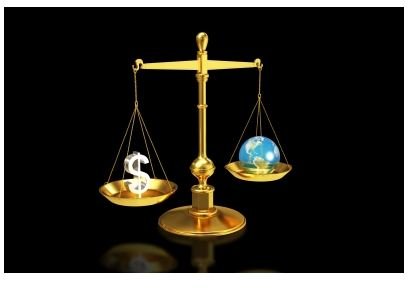Steps to Achieve Control of Personal Finances
The Snowball Effect
The term “snowball effect” in personal finances often refers to mounting debt and how fees and interest rates compound debt. This term can also apply to the reverse when attempting to gain control of personal finances. If you start saving and controlling spending the interest and savings, you can begin to compound these dollars quickly to bring finances into positive numbers. Use the snowball effect to benefit you by allowing savings to build with interest and regular scheduled deposits; get into the habit of looking for low cost alternatives to how you spend money and time to make this theory work even more in your favor.
Image Credit (Wikimedia Commons)
Financial Habits
Habits are something you do without thinking out of repetition. Habits can be both good and bad. Financial habits are habits concerning money. Examples of bad financial habits include excess spending on food or clothes, charging everything and failing to have a savings plan. Good financial habits include spending less on things you already purchase, creating and maintaining savings goals and avoiding impulse spending. To stop a bad habit you must replace it with an equally good habit. Learning how to make your own flavored coffee instead of buying a cup each morning is an example. Riding a bike three blocks to the store for dinner ingredients can replace driving three blocks to McDonald’s. Finding cheaper store brands to replace equivalent name brands is another example.
Overcompensation
Be careful though not to overcompensate for the time your finances got out of control. Taking the household finances and cutting into basic needs too far can make the effort to gain control of personal finances painfully unnecessary. An example would be washing out freezer bags to reuse them each month for a year when the gain doesn’t outweigh the savings.
Knowing Your Basic Needs
One of the best methods is to know your basic needs and stick with those. Notice I didn’t say cut back to “recommended” or “the” basic needs; everyone has different basic needs so trying to fit yourself into a recommended norm will NOT work. If you need to travel 20 miles to work then you need the car; if you are diabetic then you need a specialized diet. Fit your personal finances to meet your basic survival for one year. Use the 12 months to get yourself into personal savings and spending habits that will continue afterwards when you don’t need them to stay alive.
Forward Thinking and Goal Setting

As you organize your finances consider some options for continuing success. Paying yourself first is one method, where you put a set amount or percentage into savings before paying out any other bills. Creating a budget with some room for unseen problems or needs is essential so you don’t break the cycle of financial control. Having an emergency savings or contingency fund goes a long way to ensuring you don’t cause financial distress for yourself.
Image Credit (Freedigitalphotos)
